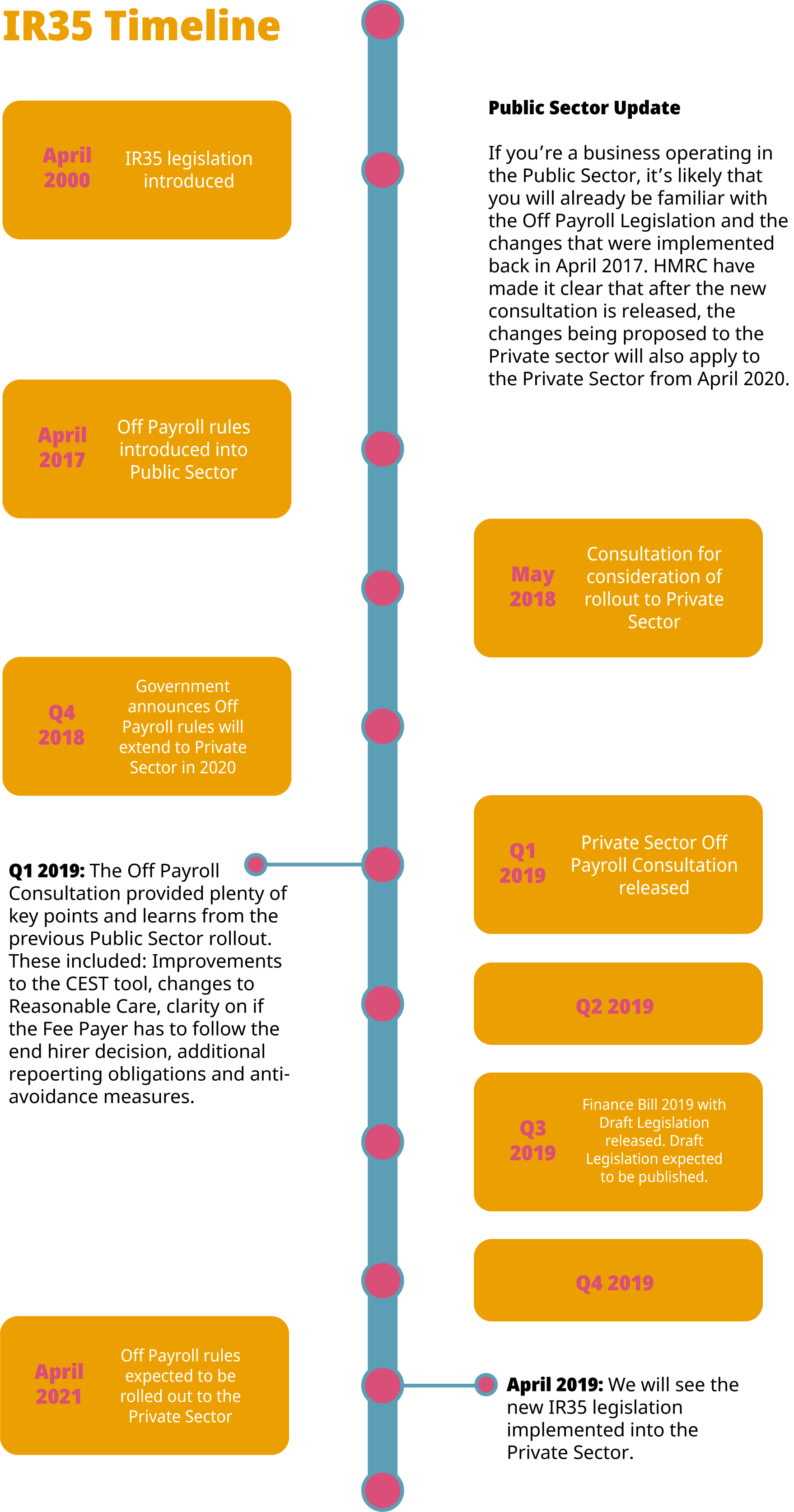What is IR35?
IR35 is the tax legislation that's designed to combat tax avoidance.
Introduced by Her Majesty's Revenue and Customs (HMRC), the IR35 legislation is targeting workers who are supplying their services to clients via an intermediary, a Limited Company (Ltd) or a Personal Service Company (PSC), who would be classified as an employee if the intermediary wasn't being used. These are being referred to by HMRC as 'disguised workers'.
Although it's coming into play for the Private Sector in April 2021, IR35 has been around for a number of years. Initially introduced in 2000, the UK Government made changes to the legislation in 2017, specifically for the public sector.
Currently self-employed individuals operating through a PSC in the Private Sector will receive a gross payment to their company and can split their income between a salary and dividends. This usually creates a tax benefit to the contractor which results in a higher take home.
HMRC intends to use IR35 reform to clarify instances where a contractor is using a PSC to provide services to a company but is operating as an employee. These 'disguised employees' are expected to pay a similar amount of Income Tac and National Insurance contributions as someone who is employed.
Who will these changes affect?
After implementing the new IR35 legislation to the Public Sector back in April 2017, it will now be extended across the Private Sector starting from April 2021. Medium and large businesses within the Private Sector and defined by the Companies Act 2006, will be expected to implement and abide by these new rules from this date onwards.
Small businesses within the Private Sector will continue to follow the existing rules and will therefore be excluded and unaffected by the new changes. To qualify as a small business, a company must meet at least two of these three qualifying requirements:
- Have a turnover of no more than £10.2m
- Have no more than 50 employees
- Have a balance sheet of no more than £5.1m

Client Solutions IR35
Need IR35 support?
With 50 years' recruitment experience, we're the right choice for IR35 compliance.
If you would like to talk to one of our experts, please get in touch using the form. If you'd prefer to talk to us right away, call us on 01785 339 000.

